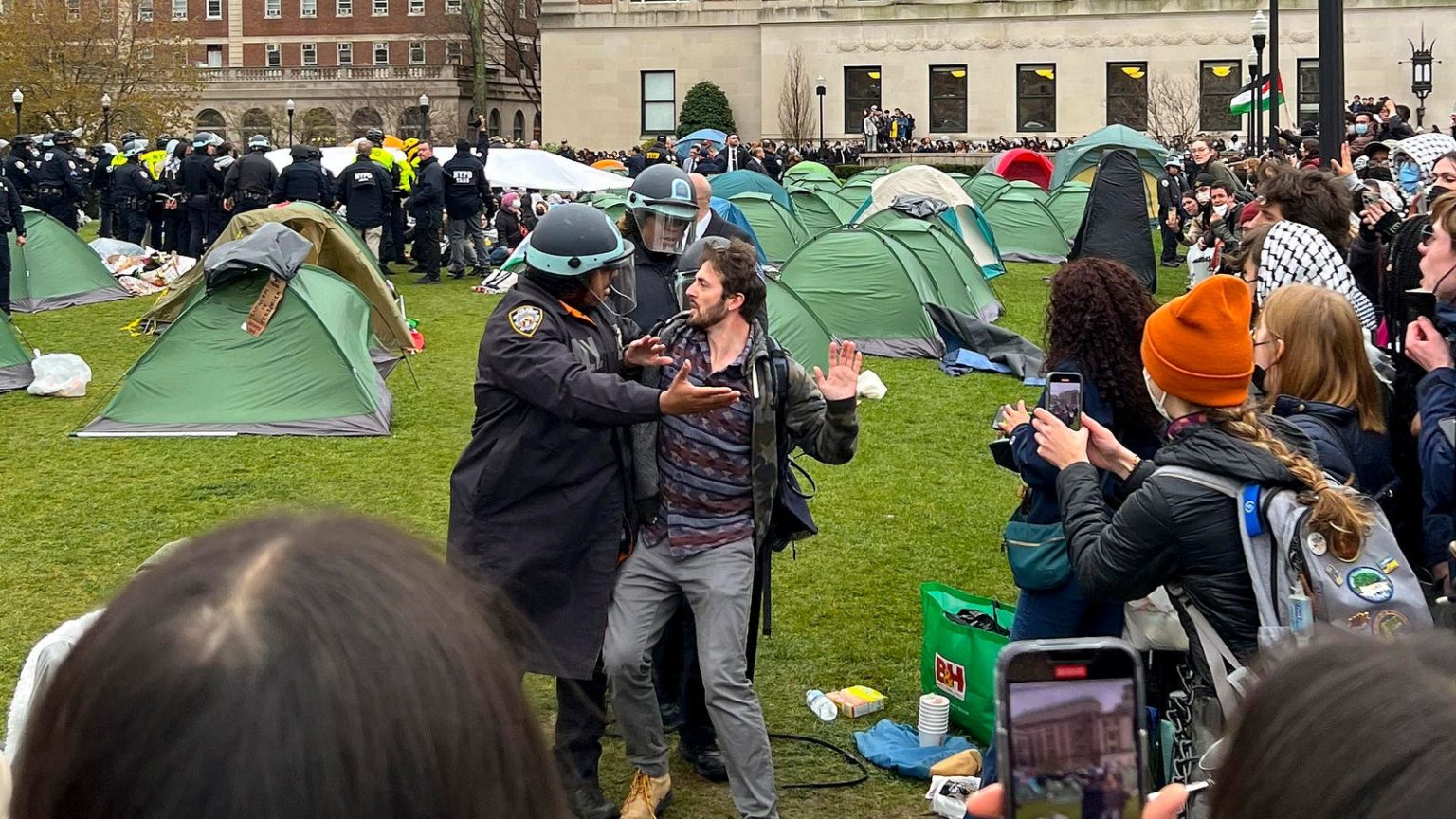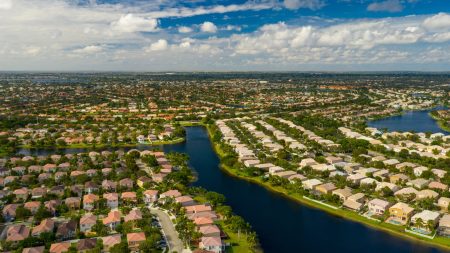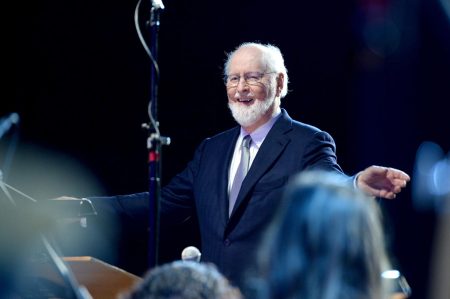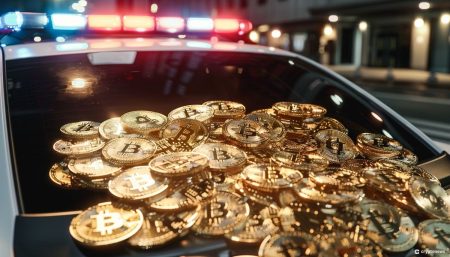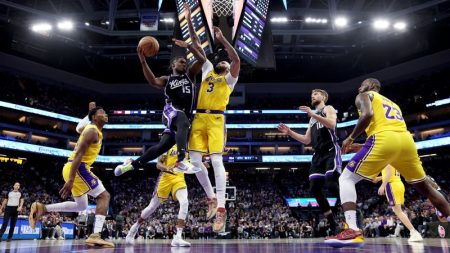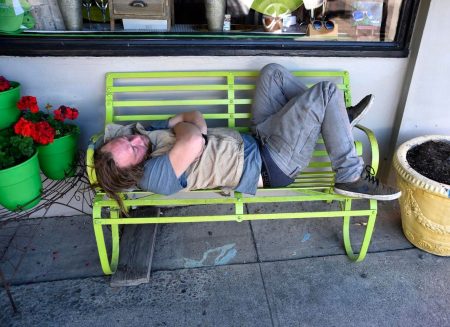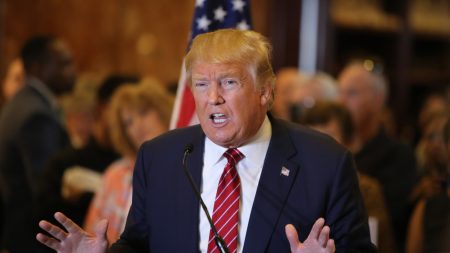Police officers clear out student protest encampment at Columbia University’s campus
On Thursday, the New York Police Department cleared out an encampment of students protesting Israel’s war in Gaza on Columbia University’s campus. The officers, in riot gear, placed nearly all the students in zip ties and loaded them onto buses, though no charges have been filed yet. This crackdown came on the same day President Nemat Shafik testified before Congress on campus antisemitism, as the university aims to address the disruptive protest that violates new policies and creates a harassing environment for students.
President Shafik expressed regret in having to take these steps to disperse the encampment, acknowledging the importance of protests in Columbia’s history. Protests have played a vital role in the university’s legacy, with major demonstrations against segregation and the Vietnam War during the 1960s student movement. Shafik emphasized the balance between students’ right to express political views and the need to protect others from harassment and discrimination on campus, highlighting the complexity of managing such situations.
The situation escalated further when Isra Hirsi, the daughter of Rep. Ilhan Omar, announced her suspension by Columbia’s Barnard College for her involvement in the protests. Despite the suspension, Hirsi remained resolute in her determination to continue protesting until their demands are met. It remains unclear if she was among the students taken into custody by the police. This incident reflects the growing tensions on university campuses amid protests related to the Israel-Hamas conflict, with some protesters facing allegations of antisemitism.
The encampment was established early Wednesday morning on the south lawn of Columbia’s Morningside Heights campus, prompting the university to issue a dispersal order later that evening. Amnesty was offered to student protesters who left before 9 p.m. The following day, President Shafik testified before the House Education and Workforce Committee about addressing antisemitism on campus, stating that it has no place at Columbia and is a top priority for the university. In recent months, other university presidents faced similar challenges with protests and allegations of discrimination on their campuses.
The tense climate on university campuses in response to the Israel-Hamas conflict has led to increased scrutiny on protests and allegations of antisemitism. University presidents from Harvard, MIT, and the University of Pennsylvania previously testified before the House on their campuses’ climate, with some facing resignations following the hearings. The challenges faced by academic leaders in addressing these issues highlight the complexities of managing free speech and political expression while ensuring a safe and inclusive environment for all students. As the situation at Columbia University unfolds, it underscores the ongoing debates and tensions surrounding protests, free speech, and discrimination on college campuses across the country.




